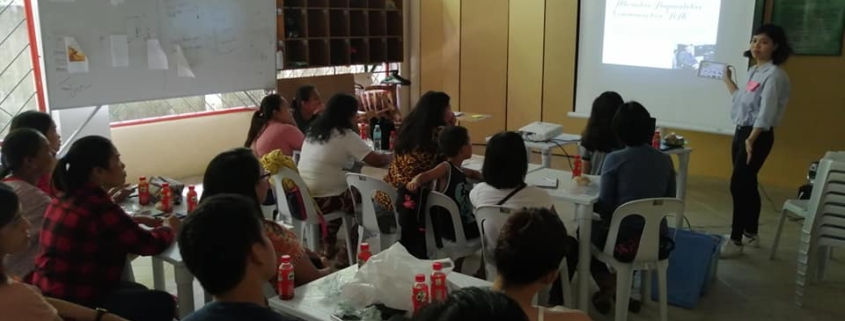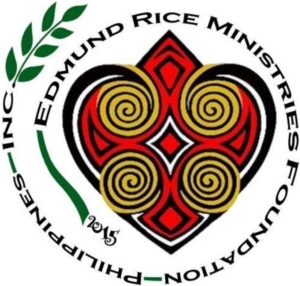Disability Inclusive Disaster Risk Reduction (DIDRR): Maasin City, Southern Leyte and Palo, Leyte, Philippines | January 2018 to December 2020
/in Completed, Completed 2020/by Cresanto SabanpanTime and again, history continues to urge us to consider the plights of persons with disabilities, particularly in times of crisis or disasters. The United Nations pointed out that people with disabilities are disproportionately affected “due to a range of factors including exclusion from decision-making processes, often poor living conditions, inadequate infrastructure, income inequality, and limited access to basic services, especially education and information.” When a disaster strikes, these groups have specific and differentiated needs which are not taken into consideration by communities, cities, and nations (UNISDR, 2015). Persons with disabilities and their organizations oftentimes are not included in any stage of disaster management. As a result, DRRM plans and policies do not address the challenges that go along with having an impairment. Physical inaccessibility also sends persons with disabilities into further isolation. Early warning systems, evacuation centers, disaster preparedness measures, disaster response, and relief are not inclusive. Numerous studies confirm that social stigma, especially in developing countries creates inferiority among persons with disabilities which leads to the denial of fundamental rights and services to this population group (Smith, Jolley & Schmidt, 2012).
In partnership with CBM Australia through the support of the Australian Government Aid program, ERMFPI has worked with villages in Leyte provinces so that they are both disability-inclusive and disaster-ready. The Foundation understands that when disasters strike, it is often people with disability, along with the elderly, who are being hit the hardest. From 2018-2020, ERMFPI has prompted local villages and their councils to think about disability issues across all aspects of disaster planning. ERMFPI’s approach began with identifying people with disabilities in villages and working with them to set up a small Disabled People’s Organisation (DPO). These groups are now carrying the torch and are keeping the fire burning in the advocacy for disability-inclusion.
Sustainable Community Development (SCD) program: Kabankalan, Negros Occidental | January 2018 to December 2020
/in Completed, Completed 2020/by Cresanto SabanpanPrimarily supported by Edmund Rice Foundation Australia (ERFA) together with the assistance of various local partners, the SCD program was anchored on the Rights Based Approach (RBA) and Participatory Community Development. At its core, SCD was developed in recognition that people are the owners of rights and are not merely recipients of charity. Taking on the RBA as its main approach, SCD considered each and every individual as legitimate claimants of rights and a life with dignity and that certain actors in society bears the obligations to respect, protect and fulfil these rights.
With SCD as the overarching program, five (5) key priority focus were established based on community needs which were translated into developmental projects: Formation, Education, Health and Social Care, Livelihood and Environment. Within its program timeline, its services has reached 11 barangays in Kabankalan City, Negros Occidental and project teams has worked with over 38 community groups including the Indigenous Sector in Sitio Tigbao, Himamaylan, Negros Occidental.
Formation:
Working with communities that are hardly reached by government and aid agency programs, the Formation project team has implemented series of community formation activities- focusing on topics related to human rights, leadership and empowerment, understanding community needs, parental care and building a loving relationships among families.
Education:
The Edmund Rice story is about care and compassion for children. ERMFPI has been greatly moved by the profound realization that those organizations that live from and by this story has its moral obligation not to ignore the plights of children in our world. With support from the Assisi Development Foundation, Inc., ERM Kabankalan specifically targeted children coming from the marginalized sector to provide appropriate assistance in their schooling and/or encouraged those who dropped out of school to engage in schooling. In Sitio tigbao, Project team members had to tread 2-3 hours of challenging terrains in order to reach the children from the Indigenous sector to conduct community based learning.
Health and Social Care:
In partnership with Corazon Locsin Hospital, Kabankalan City Health Office, Cataract Foundation and Visayas Hearing Center, ERM Kabankalan facilitated access to consultations and treatments, ear and eye screening, post hospital discharge, counselling and other health related services to over 38 needy community groups across Kabankalan, Negros Occidental.
Livelihood:
Having been able to establish a good working relationship with DTI, Department of Agriculture and several Organic Farming Groups, the Livelihood project under the SCD program was developed to to fulfil the basic human rights of farmers across Kabankalan, to have the means of freeing themselves from poverty through creative and innovative methods of farming. While Negros is primarily rich in agricultural resources, women were also taught alternative liveilhoods such as livestock raising, cooking, dress-making, rug and handicraft making. Such trainings formed part in the strategy of building community resiliency in times of crisis and/or disaster situations where agricultural livelihoods will be negatively impacted.
Environment:
In recognition that caring for the earth is one of the core values of ERMFPI, regular environmental activities such as tree planting, community clean-up drives, Environment Education Trainings (Sanitation, Waste management, Responsible Stewardship of the Earth) and Disaster Preparedness activities were conducted across Kabankalan City. For over 8 years, ERM Kabankalan has trained over a thousand community members including women and children in the effort to lessen the impact of climate crisis.
Youth Development Animation (YDA): Maasin City, Southern Leyte; Bato, Leyte and Palo, Leyte Philippines | January 2018 to December 2020
/in Completed, Completed 2020/by Cresanto SabanpanERMFPI has worked closely with the Department of Education (Southern Leyte and Leyte Division), targeting High School youths in order for them to have access to personal and values formations and leadership trainings. The YDA project has contributed to the students’ holistic growth and has served as an instrument to bridge gaps of underlying conflicts, tension and broken relationships between students and parents.
For over 8 years, ERMFPI has received countless recognitions from various public High Schools, including DepEd school divisions for the invaluable contributions it has made to the youth of the island of Leyte.
Child Assistance and Livelihood Promotion (CALP): Maasin City, Southern Leyte; Bato, Leyte and Palo, Leyte Philippines | January 2018 to December 2020
/in Completed, Completed 2020/by Cresanto SabanpanAlso funded by Edmund Rice Foundation Australia (ERFA), ERMFPI has worked with communities in Leyte to assist the poorest of children and youth to access and engage in schooling as a means of hope and happiness, at the same time empower their families to be freed from the chains of poverty.
Taking these issues through a gender perspective lens, ERMFPI specifically targeted women (mostly mothers) and provided them appropriate livelihood trainings and seed funding. Developmental Supplementary Feeding (DSF), provision of school supplies and tutorial activities for their children were also regularly implemented in order for them to be motivated in going to school.
Nine (9) Women’s Association were capacitated to face the challenges of everyday life head-on. These associations were all duly accredited by relevant regulating bodies.
Community Based Rehabilitation (CBR): Maasin City, Southern Leyte; Bato, Leyte and Palo, Leyte Philippines | January 2018 to December 2020
/in Completed, Completed 2020/by Cresanto SabanpanERMFPI has worked with 9 communities across the Leyte island to prevent disability in children and youth and to assist those with disability to live positively with lives fulfilled according to their potential and abilities. Since 2012 until 2020, the CBR project was funded by Edmund Rice Foundation Australia (ERFA) where it garnered various recognitions from different municipal and barangay health units. Having partnered with quite a handful of private and public health practitioners most especially on the area of eye and ear health, referral pathways were established to ensure access of poor community members to check-ups, surgeries and other medical interventions. Community volunteers were also organized and trained to provide immediate interventions and facilitate referrals to qualified health experts.
Our Address
ER House
National Highway, Maria Clara, Maasin City
Tel No. : (63)(53)5709427
4th Floor Cebu Caritas Bldg
P. Gomez St., Brgy Sto. Nino, Cebu City
Tel No. : (63)(32)2637422
Office Hours
- Monday-Friday 8am – 5pm


